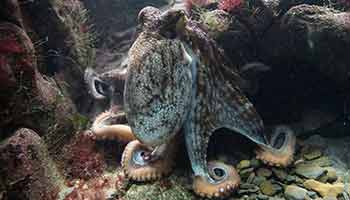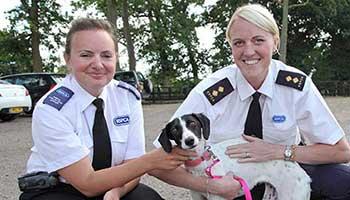RSPCA calls for halt to plans for world's first octopus farm
08.05.24
The RSPCA is seriously concerned about plans to establish the world's first commercial octopus farm in Spain.

This concerning development has sparked the animal welfare charity to raise its concerns over the commercial farming of octopuses and the negative welfare impact it could have on this complex animal, and calling for a halt to proposals for the first octopus farm.
Dr Marc Cooper, head of farm animals at the RSPCA, said:
"Octopus are highly advanced, complex and intelligent marine animals that tend to be solitary creatures. Their suitability to be farmed is highly questionable and there is also a significant gap in knowledge on how to properly care for these animals and meet their needs in a commercial setting. In addition, we are not aware of any humane slaughter methods for octopus that could be carried out on a commercial scale."
The hit Netflix documentary film My Octopus Teacher raised awareness of how sentient, intelligent and complex the lives of octopuses are, and helps people to understand how farming them is highly likely to cause significant suffering to these intelligent creatures.
In the UK, octopus have been legally recognised as sentient beings and are included under the Animal Welfare (Sentience) Act, which recently came into force and means that any legislation going forward has to take this into account. As part of the research which spearheaded this leap forward for their protection, the London School of Economics and Political Science (LSE) made a number of recommendations including that octopus should not be commercially farmed concluding that 'high welfare octopus farming was impossible'.
This was based on a number of factors such as high hatchling mortality, their need for live prey and the fact that as generally solitary animals they can become stressed or aggressive when kept in close proximity to others.
There is also a lack of understanding concerning their physical, behavioural needs, making providing the correct conditions for them very difficult, as well as their cognitive complexity meaning they could develop poor psychological welfare when kept in a captive environment. Little information is also available on cephalopod anaesthesia if they were to become injured in captivity.
Find out more information visit our animal sentience page.


